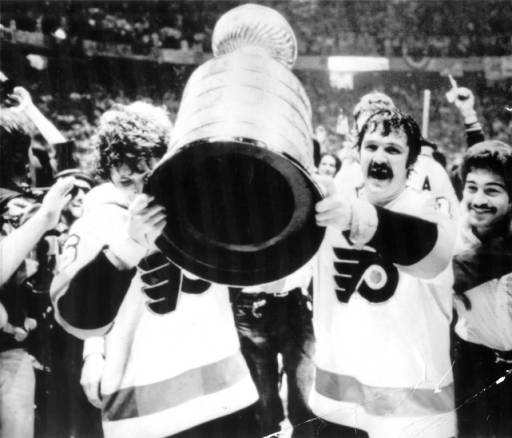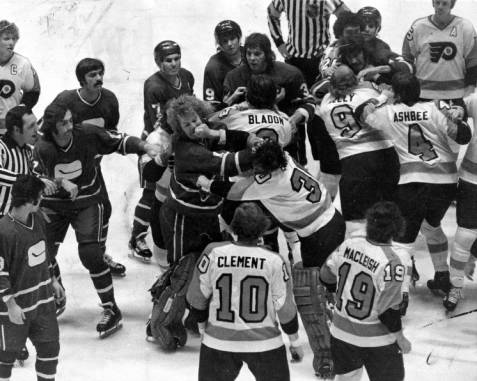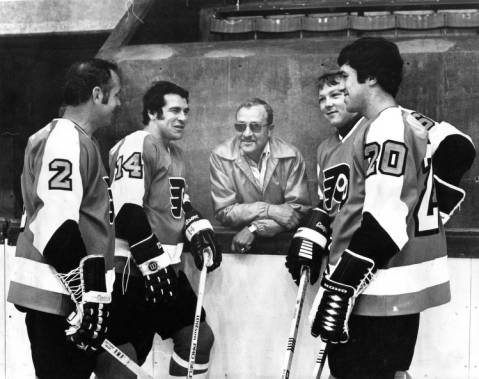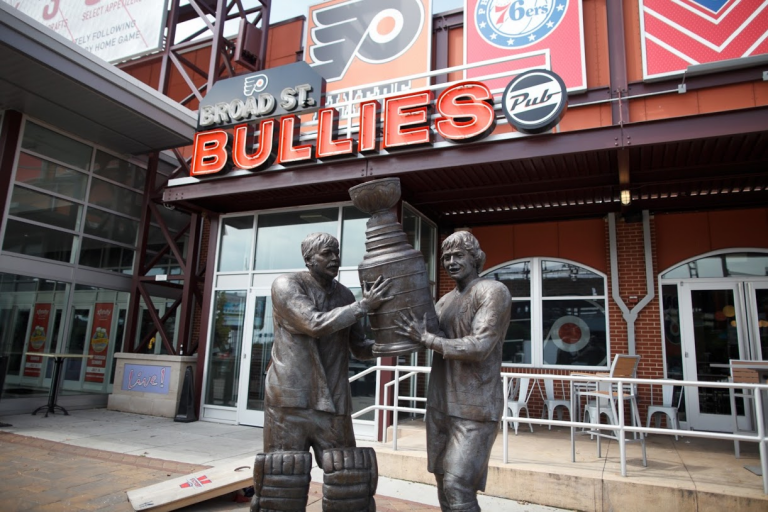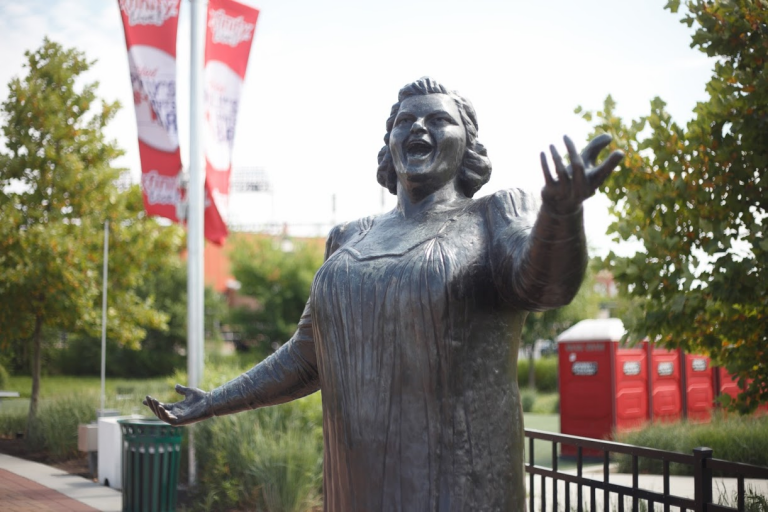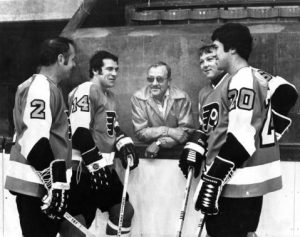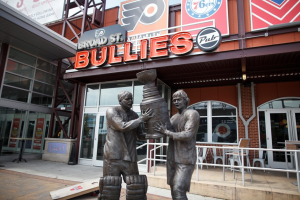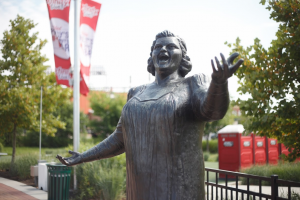Broad Street Bullies
Essay
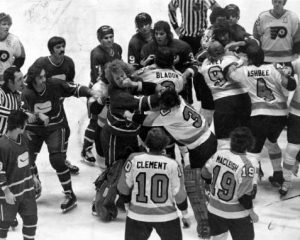
The Philadelphia Flyers, formed as a National Hockey League expansion team in 1967, became known as the Broad Street Bullies for their aggressively physical play during the 1972-73 season. As the Flyers racked up penalty minutes at a record pace, Philadelphia’s press corps tried to create a colorful nickname for the team. Jack Chevalier and Pete Cafone of the Philadelphia Bulletin called them the “Broad Street Bullies” following a brawling 3-1 victory over the Atlanta Flames, and the nickname stuck to the team also known for winning two Stanley Cup championships and for renditions of “God Bless America” by Kate Smith (1907-86) at home games.
The Flyers acquired the band of tough players via the 1967 Expansion Draft, amateur drafts, free agency, and trades. The team took Gary Dornhoefer (b. 1943), Bernie Parent (b. 1945), and Ed Van Impe (b. 1940) in the 1967 Expansion Draft. Bobby Clarke (b. 1949), Don Saleski (b. 1949), Dave Schultz (b. 1949), and Bill Barber (b. 1952) came through the amateur draft, and Rick MacLeish (1950-2016) arrived from Toronto in a trade that sent Parent to the Maple Leafs. Clarke became the team’s leader, winning awards for sportsmanship and the NHL’s Most Valuable Player in 1973, 1975, and 1976. Schultz (also known as “The Hammer”) was the most physical of the Flyers, setting the NHL record for penalty minutes in the 1974-75 season.
Traditionally, the Flyers played a recorded version of Kate Smith singing “God Bless America” before the game, but she performed it live for the 1973 season opener. It proved to be a good omen, as the team finished with a 50-16-12 record. The Flyers defeated the Atlanta Flames, New York Rangers, and Boston Bruins to win the Stanley Cup in 1974, with Parent (who returned to the Flyers in 1972) winning the Conn Smythe Trophy as playoff MVP and the Vezina Trophy as the top goalie. Coach Fred Shero (1925-90) won the Jack Adams Award as coach of the year. The Flyers became the first expansion team to win the Stanley Cup, and two million people turned out for the parade down Broad Street to celebrate the victory.
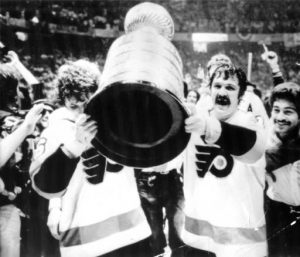
The following season, the Flyers finished with a 51-18-11 record, winning the division again. The Flyers defeated the Toronto Maple Leafs, New York Islanders, and Buffalo Sabres in the playoffs, as they secured their second Stanley Cup. This time, nearly 2½ million people turned out for the parade on Broad Street. Parent again won the Conn Smythe and Vezina Trophies, while Clarke won the Hart Trophy (MVP). The Flyers returned to the playoffs each of the next four years, but they failed to win the Cup, losing in the finals in 1976. After Dave Schultz was traded to the Los Angeles Kings in 1976 and coach Fred Shero left to become head coach and general manager of the New York Rangers in 1978, the Flyers were no longer the dominant intimidating team of the mid-1970s. The Flyers subsequently reached the Stanley Cup finals in 1980, 1985, 1987, 1997, and 2010.
The exploits of the 1972-73 Flyers became the subject of the 2010 HBO documentary Broad Street Bullies, narrated by Liev Schreiber (b. 1967). Goalie Bernie Parent (1984), forward Bobby Clarke (1987), left wing Bill Barber (1990), and head coach Fred Shero (2013) have been enshrined in the Hockey Hall of Fame.
Karen Guenther is Professor of History at Mansfield University and author of Sports in Pennsylvania (2007), published by the Pennsylvania Historical Association. (Author information current at time of publication.)
Copyright 2016, Rutgers University
Gallery
Backgrounders
Links
- Broad Street Bullies Pub (Xfinity Live!)
- Philadelphia Flyers
- Bobby Clarke (Hockey Hall of Fame)
- Bernie Parent (Hockey Hall of Fame)
- Fred Shero (Hockey Hall of Fame)
- Philadelphia Flyers Win The Stanley Cup!! (1974, YouTube)
- '74 Cup Finals Game 6 Remembered (YouTube)
- 1975 Stanley Cup Final - Game 6 (YouTube)
